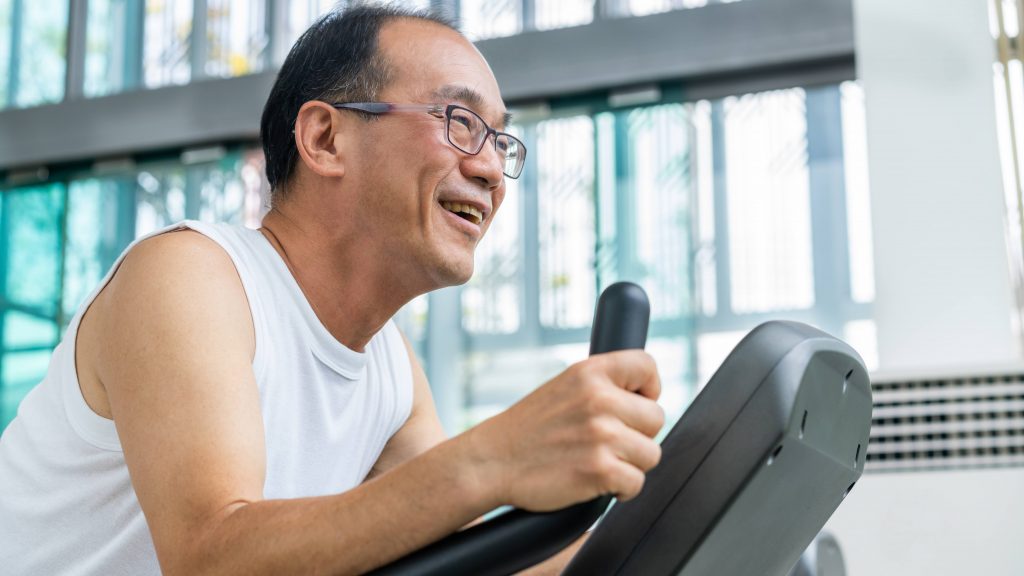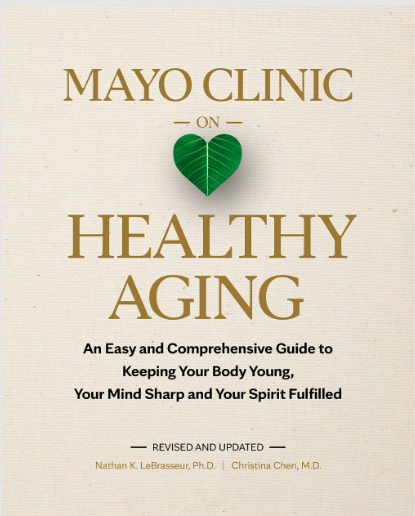-
Mayo Clinic Minute: Aging and the benefits of exercising
Exercising as you age can be challenging. Sometimes it can feel like your body is breaking down. One possible reason for this could be senescent cells, which build up in your body as you get older and contribute to age-related disorders.
A recent study by Mayo Clinic shows that exercise and other physical activities can reduce the number of senescent cells.
Dr. Nathan LeBrasseur, director of the Robert and Arlene Kogod Center on Aging at Mayo Clinic, says people must prioritize physical activity, especially as they age.
Journalists: Broadcast-quality video (0:58) is in the downloads at the end of this post. Please courtesy: "Mayo Clinic News Network." Read the script.
Aging and exercising
There is no magic pill to reverse the aging process. But if you want to counter the biological mechanisms that drive age-related conditions, like the accumulation of senescent cells, you will need to exercise.
"Just being more active throughout your day appears to be sufficient to reduce kind of the burden of senescence cells in an individual," says Dr. LeBrasseur.

Many people tend to lead sedentary lifestyles when they age. But Dr. LeBrasseur says older adults should find ways to become more active throughout the day.
"Dedicating time, purposeful time, to getting some form of aerobic exercise or endurance exercise, like walking or cycling or swimming, and also getting some form of strength training is critically important," says Dr. LeBrasseur.
He says just adding 30 minutes of activity daily can be beneficial.
"(It) may have benefits for muscle strength or bone health, or maybe even cognitive health and function," explains Dr. LeBrasseur.
Exercising can beneficial
- Controls weight.
- Boosts energy.
- Enhances cognitive function.
- Promotes better sleep.
Dr. LeBrasseur, is one of the medical editors of Mayo Clinic on Healthy Aging. He is also the Director of the Robert and Arlene Kogod Center on Aging and the Co-Director of the Paul F. Glenn Center for Biology of Aging Research, and the Scientific Director of the Office of Translation to Practice at Mayo Clinic.








